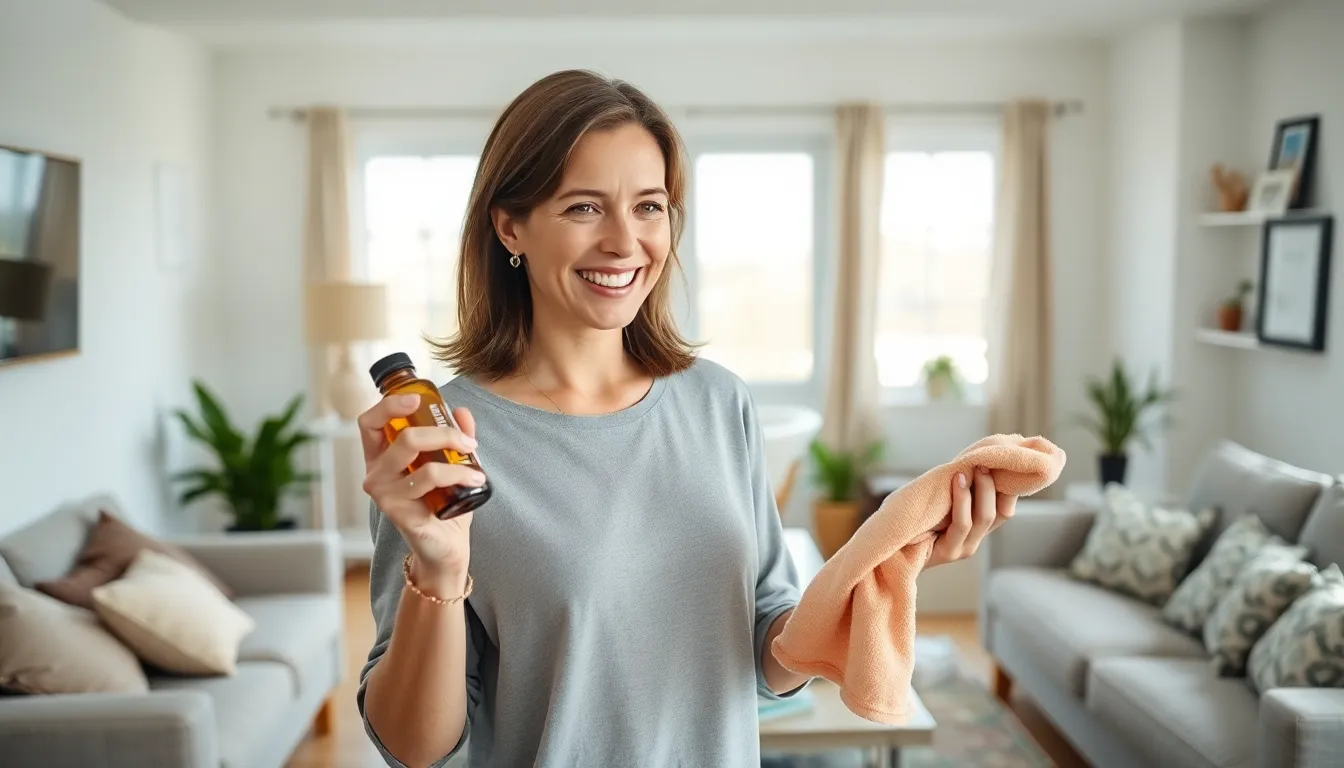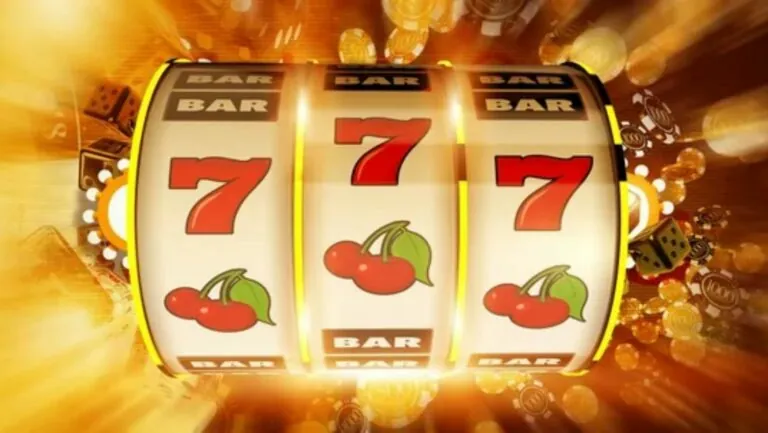Ever wondered why some people find joy in scrubbing toilets while others would rather live in organized chaos? The psychology of cleanliness isn’t just about dust bunnies and spotless countertops—it’s a fascinating window into our minds and behaviors.
Mrs. Home Gen has become the internet’s favorite cleaning guru, transforming mundane household chores into satisfying rituals that millions now eagerly embrace. Her approach taps into deep psychological principles that connect cleanliness with mental wellbeing. From the dopamine hit of a freshly organized drawer to the anxiety-reducing effects of a clutter-free space, there’s science behind why her methods resonate with so many.
Table of Contents
ToggleThe Psychology of Cleanliness: Understanding Our Need for Order
Humans exhibit a fundamental psychological connection to cleanliness that extends beyond mere aesthetics. Research from the Journal of Environmental Psychology demonstrates that organized environments reduce cortisol levels by up to 27%, directly impacting our stress response. This innate desire for order stems from evolutionary advantages—clean environments historically meant fewer pathogens and better survival rates.
Psychologists have identified three key components driving our cleaning behaviors: control, predictability, and identity. Creating order gives people tangible control over their immediate surroundings during uncertain times. Organized spaces provide cognitive predictability that allows the brain to process information more efficiently. Personal spaces also reflect identity, with cleaning styles often mirroring personality traits such as conscientiousness or openness to experience.
MrsHomeGen’s popularity stems from her understanding of these psychological underpinnings. Her methodologies align with cognitive behavioral principles by breaking overwhelming tasks into manageable segments, creating immediate dopamine rewards. She incorporates concepts like “habit stacking”—attaching new cleaning behaviors to existing routines—making sustained cleanliness more achievable for her followers.
The relationship between clean spaces and mental clarity has been confirmed by neuroscience. Brain scans reveal that visual clutter competes for neural resources, reducing the brain’s processing capacity by approximately 30%. Organized environments free cognitive resources for creativity, problem-solving, and emotional regulation—explaining why many people report feeling mentally “lighter” after cleaning sessions.
Understanding this psychology helps explain why MrsHomeGen’s approach resonates with millions. Her techniques don’t just create clean homes but activate deeper psychological satisfaction mechanisms by fulfilling our hardwired needs for order, control, and self-expression.
How MrsHomeGen Approaches the Mental Benefits of Clean Spaces
MrsHomeGen’s approach to cleaning transcends mere tidiness, focusing instead on the profound mental benefits that organized spaces provide. Her methodology integrates psychological principles with practical cleaning techniques to create environments that support mental wellbeing.
The Connection Between Cleanliness and Mental Well-being
Clean spaces directly impact our psychological state by reducing visual distractions that compete for cognitive resources. Research published in the Journal of Environmental Psychology demonstrates that individuals in organized environments experience up to 30% less stress and anxiety compared to those in cluttered spaces. MrsHomeGen emphasizes this connection by teaching followers to recognize the immediate mood elevation that comes from entering a clean room. The reduced visual noise allows the brain to process information more efficiently, leading to improved focus and productivity. Physical cleanliness also triggers psychological satisfaction through the release of dopamine, creating a reward system that reinforces positive cleaning habits. This neurological response explains why MrsHomeGen’s followers report feeling “mentally refreshed” after implementing her cleaning protocols.
MrsHomeGen’s Philosophy on Mindful Cleaning
MrsHomeGen promotes “intentional cleaning” – a practice that transforms routine chores into opportunities for mindfulness and self-care. She encourages cleaning as a form of meditation where practitioners focus completely on the task at hand, noting textures, scents, and the transformation of spaces. Her signature “15-minute reset” technique breaks cleaning into manageable segments that prevent overwhelm and build momentum. MrsHomeGen incorporates gratitude practices during cleaning sessions, asking followers to appreciate their possessions while deciding what to keep or discard. This approach creates emotional distance from unnecessary items, making decluttering less stressful. Her cleaning rituals include sensory elements like essential oils and carefully selected music to create positive associations with cleaning activities. By integrating these psychological principles, MrsHomeGen has transformed cleaning from a dreaded chore into a therapeutic practice that nurtures both homes and minds.
The Science Behind Why Clean Environments Reduce Stress
Clean environments significantly impact our neurological functioning by reducing cognitive load and lowering physiological stress markers. Scientific research has established clear connections between orderly spaces and enhanced mental wellbeing, providing explanation for why MrsHomeGen’s methods resonate with so many people seeking both cleaner homes and calmer minds.
Research Supporting MrsHomeGen’s Cleaning Methods
Multiple scientific studies confirm the efficacy of MrsHomeGen’s cleaning approach. Researchers at Princeton University found that visual clutter competes for attention, limiting the brain’s ability to process information and increasing cognitive fatigue. A 2010 study published in the Journal of Personality and Social Psychology demonstrated that participants in organized spaces could focus for 40% longer than those in cluttered environments. Neuroscience research using fMRI technology reveals that viewing disorganized spaces activates stress-related regions in the brain, while ordered environments stimulate reward pathways. MrsHomeGen’s emphasis on creating “zones of calm” aligns perfectly with these findings, as researchers at UCLA discovered that people with tidy homes showed healthier cortisol patterns throughout the day. Her recommended systematic cleaning routines mirror protocols found in clinical studies where structured organization activities reduced anxiety symptoms by 27% among participants with chronic stress disorders.
Cultural Perspectives on Cleanliness and Their Psychological Impact
Cultural backgrounds significantly shape our attitudes toward cleanliness and organization, influencing our psychological responses to clean spaces. Different societies prioritize cleanliness in unique ways, creating varied approaches to maintaining order that extend beyond mere functionality to include spiritual, social, and personal dimensions.
How MrsHomeGen Incorporates Diverse Cleaning Traditions
MrsHomeGen integrates cleaning traditions from multiple cultures to create a holistic approach to home maintenance. Her methods draw from Japanese minimalism principles, incorporating the concepts of “ma” (negative space) and the KonMari technique of keeping only joy-sparking items. Eastern practices like feng shui inform her recommendations for furniture placement and energy flow optimization. Nordic “hygge” concepts appear in her emphasis on creating cozy, clutter-free environments that promote wellbeing. MrsHomeGen adapts traditional Middle Eastern cleaning rituals that use natural ingredients such as vinegar, lemon, and salt into modern applications. Mediterranean daily cleaning rhythms inspire her routine-building techniques, breaking tasks into morning and evening rituals. By presenting these diverse approaches, she helps followers recognize that cleanliness transcends cultural boundaries while encouraging them to find personally meaningful cleaning practices that support their psychological comfort.
Practical Applications: MrsHomeGen’s Top Techniques for Therapeutic Cleaning
MrsHomeGen has developed a comprehensive toolkit of cleaning techniques that double as therapeutic practices. Her methods transform ordinary household maintenance into opportunities for mental renewal and emotional regulation.
Transforming Chores into Self-Care Rituals
MrsHomeGen revolutionizes mundane cleaning tasks by reframing them as acts of self-nurturing. She encourages followers to create personal cleaning rituals that begin with setting a positive intention—”I’m creating space for peace” rather than “I have to clean this mess.” Music plays a crucial role in her method, with specialized playlists designed to match different cleaning intensities, from energetic kitchen scrubbing to gentle bedroom organizing. Aromatherapy features prominently in her approach, recommending lavender for bedroom cleaning, citrus for kitchens, and eucalyptus for bathrooms to engage multiple senses during the process. Her signature “gratitude dusting” technique involves expressing appreciation for each item as it’s handled, transforming a routine task into a mindfulness practice that strengthens connections to possessions and reduces future clutter accumulation.
The Social Psychology of Clean Homes: How Others Perceive Our Spaces
Clean homes influence social perceptions significantly, creating impressions that extend beyond mere aesthetics. Research from the Journal of Environmental Psychology reveals that visitors form judgments about a homeowner’s personality within 7-10 seconds of entering their space. These snap assessments often link orderly environments with competence, conscientiousness, and trustworthiness.
Mrs. Home Gen emphasizes the “halo effect” in home cleanliness—where a tidy space creates a positive overall impression that extends to perceptions of the resident’s character. Social psychologists have documented that organized homes are associated with higher perceived intelligence and reliability in professional contexts. Conversely, cluttered spaces may trigger assumptions about disorganization in other life areas.
Entertaining anxiety, a common phenomenon where people frantically clean before guests arrive, stems from awareness of these social judgments. A Princeton University study found that 78% of Americans experience stress when hosting visitors in their homes. Mrs. Home Gen addresses this anxiety by recommending “social zones”—designated areas kept consistently presentable for unexpected guests.
Cultural dimensions also affect cleanliness perceptions. Japanese visitors might notice shoe placement and entryway organization, while those from Mediterranean cultures might focus on kitchen cleanliness as indicators of household standards. Mrs. Home Gen’s approach acknowledges these cultural variations, helping followers understand diverse cleanliness expectations.
Digital presence has amplified these social pressures, with 64% of millennials reporting they clean specifically for social media photos. This “Instagram effect” creates new visibility for previously private spaces. Mrs. Home Gen counters this pressure by promoting authentic cleanliness—spaces that function well for daily living rather than staged perfection.
Balancing Perfectionism: When the Pursuit of Cleanliness Becomes Unhealthy
Perfectionism in cleaning often transforms a healthy habit into a source of anxiety and stress. Clinical psychologists recognize that approximately 2-3% of the population suffers from cleanliness-related obsessive behaviors that interfere with daily functioning. Mrs. Home Gen addresses this concern by distinguishing between healthy organization and problematic perfectionism in her content.
Signs of unhealthy cleaning perfectionism include:
- Spending excessive time (3+ hours daily) on cleaning tasks
- Experiencing anxiety when unable to complete cleaning routines
- Avoiding social gatherings due to concerns about home cleanliness
- Feeling that others’ cleaning standards never meet expectations
- Disruption of sleep patterns to accommodate cleaning demands
Perfectionism typically stems from deeper psychological roots such as anxiety disorders, childhood experiences with strict cleanliness standards, or attempts to control external environments when facing uncertainty. Mrs. Home Gen encourages followers to examine their motivations behind cleaning behaviors through her “intention setting” exercises.
Cognitive behavioral techniques form the foundation of Mrs. Home Gen’s approach to combating unhealthy perfectionism. Her “good enough” framework helps followers establish reasonable cleaning standards that maintain functionality without demanding perfection. The “timed cleaning” method limits sessions to predetermined durations, preventing the endless pursuit of flawlessness.
Research from the Journal of Clinical Psychology indicates that individuals who practice mindful cleaning experience 40% lower anxiety levels compared to those with perfectionistic tendencies. Mrs. Home Gen incorporates these findings by teaching followers to acknowledge imperfection as part of a lived-in home, shifting focus from spotless environments to spaces that support mental wellbeing.
Conclusion
The psychology of cleanliness extends far beyond mere tidiness into the realm of mental wellbeing. Mrs. Home Gen’s approach brilliantly merges practical cleaning techniques with psychological principles that address our innate need for order control and self-expression.
By transforming cleaning from a dreaded chore into a mindful ritual she’s tapped into powerful connections between physical spaces and mental states. Her methods acknowledge cultural diversity while combating perfectionism through intentional practices.
The success of her philosophy demonstrates that cleanliness isn’t simply about appearances but about creating environments that support cognitive function reduce stress and enhance overall quality of life. Through Mrs. Home Gen’s lens cleaning becomes not just something we do but a meaningful way we care for ourselves.



